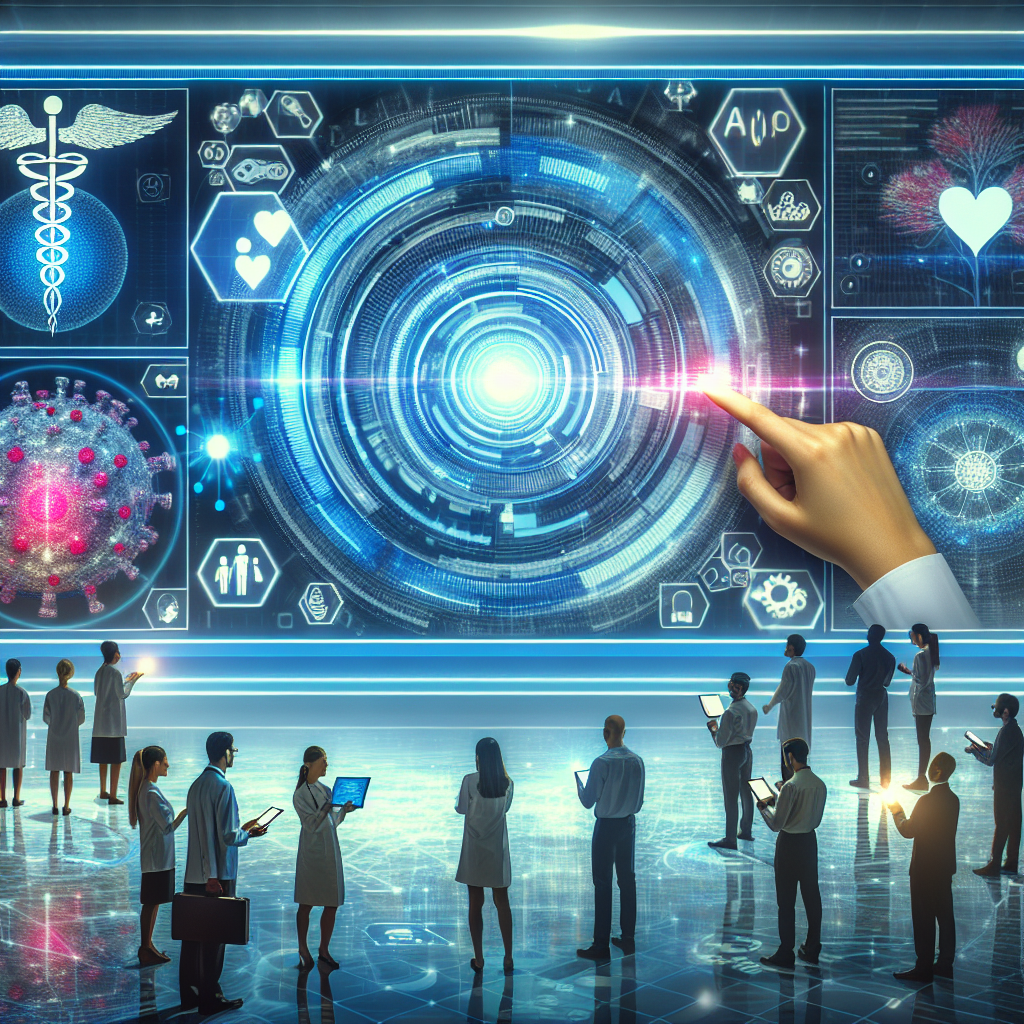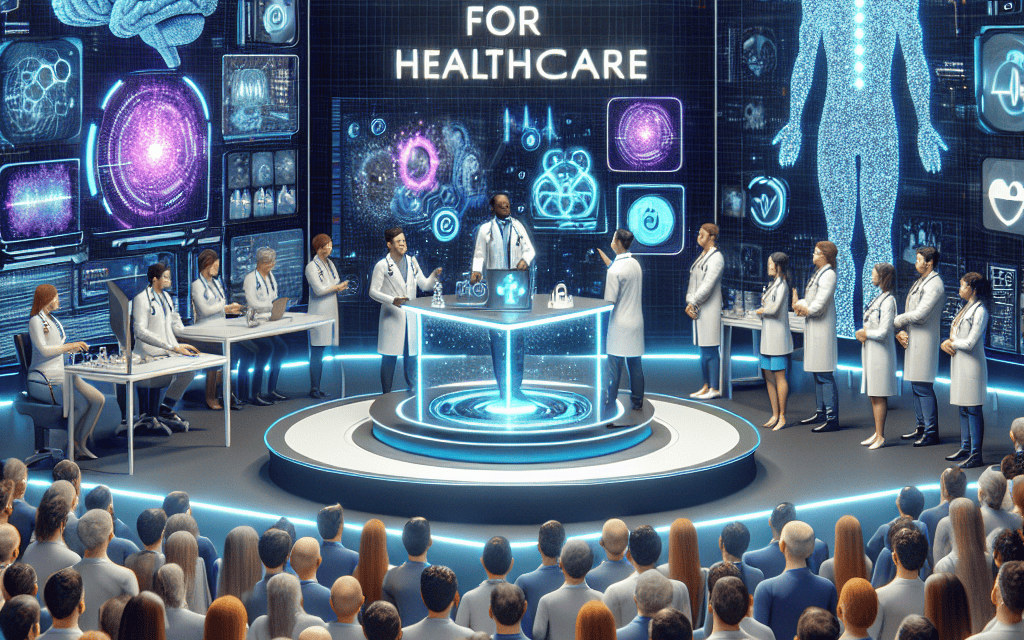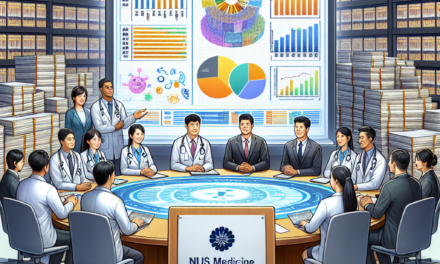Microsoft Unveils Innovative AI Solutions for Healthcare

In recent years, the healthcare industry has witnessed a transformative shift with the integration of artificial intelligence (AI) technologies. Microsoft, a leader in technological innovation, has been at the forefront of this revolution, unveiling a suite of AI solutions designed to enhance healthcare delivery, improve patient outcomes, and streamline operations. This article delves into Microsoft’s groundbreaking AI initiatives in healthcare, exploring their impact, applications, and future potential.
1. Revolutionizing Diagnostics with AI
One of the most promising applications of AI in healthcare is in the field of diagnostics. Microsoft has developed advanced AI algorithms that can analyze medical images with remarkable accuracy, assisting radiologists and pathologists in identifying diseases at an early stage.
Microsoft’s AI-powered diagnostic tools leverage deep learning models trained on vast datasets of medical images. These models can detect anomalies in X-rays, MRIs, and CT scans, often with greater precision than human experts. For instance, Microsoft’s collaboration with healthcare providers has led to the development of AI systems capable of identifying early signs of breast cancer, lung nodules, and other critical conditions.
Case studies have demonstrated the efficacy of these AI solutions. In one study, an AI model developed by Microsoft was able to detect breast cancer in mammograms with an accuracy rate of over 90%, significantly reducing false positives and negatives. This not only enhances diagnostic accuracy but also alleviates the workload on radiologists, allowing them to focus on more complex cases.
Moreover, Microsoft’s AI solutions are not limited to imaging. They are also being applied to pathology, where AI algorithms analyze tissue samples to identify cancerous cells. This has the potential to revolutionize cancer diagnostics, enabling faster and more accurate detection of malignancies.
In summary, Microsoft’s AI-driven diagnostic tools are poised to transform the way diseases are detected and diagnosed, offering the potential for earlier intervention and improved patient outcomes.
2. Enhancing Patient Care with AI-Powered Virtual Assistants
Another significant area where Microsoft is making strides is in the development of AI-powered virtual assistants for patient care. These virtual assistants are designed to improve patient engagement, streamline communication, and provide personalized healthcare experiences.
Microsoft’s virtual assistants, powered by natural language processing (NLP) and machine learning, can interact with patients in a conversational manner. They can answer common health-related questions, schedule appointments, and provide medication reminders. This not only enhances patient satisfaction but also reduces the burden on healthcare staff.
For example, Microsoft’s collaboration with healthcare organizations has led to the deployment of virtual assistants in hospitals and clinics. These assistants can triage patients by asking a series of questions to assess their symptoms and direct them to the appropriate care provider. This not only speeds up the process of getting patients the care they need but also optimizes resource allocation within healthcare facilities.
Furthermore, Microsoft’s virtual assistants are equipped with the ability to integrate with electronic health records (EHRs), allowing them to provide personalized recommendations based on a patient’s medical history. This level of personalization enhances the quality of care and ensures that patients receive tailored advice and treatment plans.
In conclusion, Microsoft’s AI-powered virtual assistants are revolutionizing patient care by improving communication, enhancing patient engagement, and providing personalized healthcare experiences.
3. Streamlining Healthcare Operations with AI
Beyond diagnostics and patient care, Microsoft is leveraging AI to streamline healthcare operations, making them more efficient and cost-effective. This involves the use of AI to optimize administrative tasks, manage resources, and improve decision-making processes.
One of the key areas where AI is making an impact is in the management of healthcare supply chains. Microsoft’s AI solutions can analyze data from various sources to predict demand for medical supplies, optimize inventory levels, and reduce waste. This ensures that healthcare facilities have the necessary resources to provide quality care without incurring unnecessary costs.
Additionally, AI is being used to enhance workforce management in healthcare settings. Microsoft’s AI algorithms can analyze staffing patterns and patient flow data to optimize staff schedules, ensuring that healthcare facilities are adequately staffed at all times. This not only improves operational efficiency but also enhances the quality of care provided to patients.
Moreover, Microsoft’s AI solutions are being applied to financial management in healthcare. By analyzing billing data and identifying patterns, AI can help healthcare organizations detect fraudulent activities, reduce billing errors, and improve revenue cycle management.
In summary, Microsoft’s AI solutions are streamlining healthcare operations by optimizing supply chains, enhancing workforce management, and improving financial management, ultimately leading to more efficient and cost-effective healthcare delivery.
4. Advancing Research and Development with AI
Microsoft’s AI initiatives are also playing a crucial role in advancing research and development in the healthcare sector. By harnessing the power of AI, researchers can accelerate the discovery of new treatments, develop personalized medicine, and improve clinical trials.
One of the most significant contributions of AI to healthcare research is in the field of drug discovery. Microsoft’s AI algorithms can analyze vast datasets of chemical compounds and biological data to identify potential drug candidates. This significantly reduces the time and cost associated with traditional drug discovery methods.
For instance, Microsoft’s collaboration with pharmaceutical companies has led to the development of AI models that can predict the efficacy and safety of new drugs before they enter clinical trials. This not only speeds up the drug development process but also increases the likelihood of successful outcomes.
Furthermore, AI is being used to develop personalized medicine approaches. By analyzing genetic data and patient records, Microsoft’s AI solutions can identify biomarkers associated with specific diseases and tailor treatment plans to individual patients. This has the potential to revolutionize the way diseases are treated, offering more effective and targeted therapies.
In addition, AI is enhancing the efficiency of clinical trials. Microsoft’s AI algorithms can analyze patient data to identify suitable candidates for clinical trials, ensuring that trials are conducted more efficiently and with higher success rates.
In conclusion, Microsoft’s AI initiatives are advancing research and development in healthcare by accelerating drug discovery, enabling personalized medicine, and improving the efficiency of clinical trials.
5. Addressing Ethical and Privacy Concerns in AI-Driven Healthcare
While the integration of AI in healthcare offers numerous benefits, it also raises ethical and privacy concerns that must be addressed. Microsoft is committed to ensuring that its AI solutions are developed and deployed responsibly, with a focus on transparency, fairness, and privacy.
One of the primary ethical concerns in AI-driven healthcare is the potential for bias in AI algorithms. Microsoft is actively working to mitigate this risk by ensuring that its AI models are trained on diverse datasets that represent different populations. This helps to reduce bias and ensure that AI solutions provide equitable care to all patients.
Privacy is another critical concern in AI-driven healthcare. Microsoft’s AI solutions are designed with robust security measures to protect patient data. This includes encryption, access controls, and compliance with data protection regulations such as the General Data Protection Regulation (GDPR) and the Health Insurance Portability and Accountability Act (HIPAA).
Moreover, Microsoft is committed to transparency in AI development. The company provides detailed documentation on how its AI models are developed and tested, ensuring that healthcare providers and patients understand how AI solutions are being used in their care.
In summary, Microsoft is addressing ethical and privacy concerns in AI-driven healthcare by ensuring fairness, protecting patient data, and promoting transparency in AI development and deployment.
Conclusion
Microsoft’s innovative AI solutions are transforming the healthcare industry, offering new possibilities for diagnostics, patient care, operational efficiency, research, and development. By leveraging the power of AI, Microsoft is enhancing healthcare delivery, improving patient outcomes, and addressing critical challenges in the sector. As AI continues to evolve, Microsoft’s commitment to ethical and responsible AI development will ensure that these technologies are used to benefit patients and healthcare providers alike. The future of healthcare is undoubtedly intertwined with AI, and Microsoft’s pioneering efforts are paving the way for a more efficient, effective, and equitable healthcare system.





